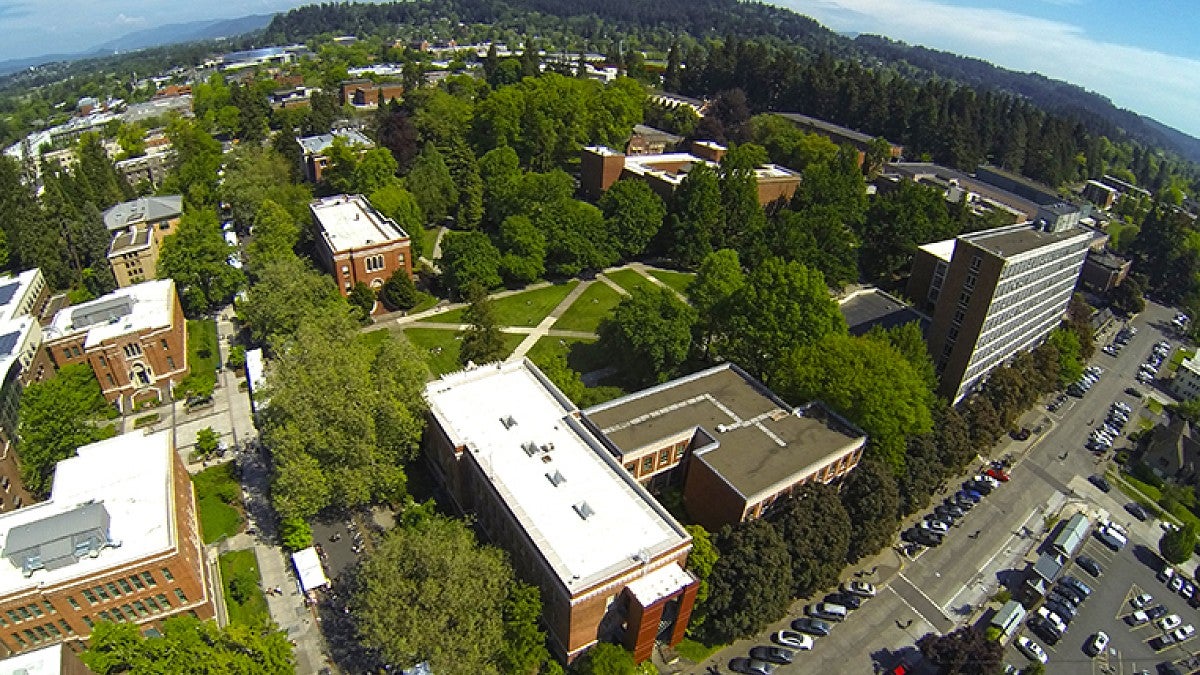As part of its ongoing commitment to improving STEM education — science, technology engineering and mathematics — the UO is joining a national effort that aims to boost the diversity of faculty and students.
The three-year initiative funded by the National Science Foundation will help 15 public research universities reform their recruitment, hiring and retention practices and commit to more inclusive teaching, advising and research mentoring practices.
“Retaining and recruiting a more diverse faculty is critical to our future success and represents an institutional priority for the University of Oregon,” said Provost and Senior Vice President Jayanth Banavar. “This is a prestigious project and we are proud to be a part of the National Science Foundation’s efforts at bringing more people of color and women into the STEM fields.”
The UO and other participating universities will begin their work with a self-assessment of their current practices and resources. The schools will then develop and implement an action plan for initial change and map ways to scale such efforts across all their STEM programs. The initiative is aimed at enabling STEM faculty members to use inclusive teaching practices and institutions to increase the diversity of the STEM professoriate.
“These practices support an inclusive STEM education environment,” said Victoria DeRose, director of the Center on Diversity and Community in the Division of Equity and Inclusion and associate vice president for equity and inclusion. “Increased representation and inclusive teaching practices benefit our students and help create a climate to recruit and retain the best faculty.”
DeRose, also a professor in the Department of Chemistry and Biochemistry, will lead the UO’s initial team in the effort. Called the IChange Team, the group will include representation from administrative and STEM-related units.
“We are assembling a terrific team,” DeRose said. “Many people across campus are enthusiastic about supporting access and success for diverse students and faculty in STEM-related and all other fields.”
The NSF Alliance has captured best practices and designed a structured, goal-oriented program that guides universities to start them at their home institution, DeRose said. Although designed for STEM, many of the institutional practices will align with goals of non-STEM units.
Hal Sadofsky, the College of Arts and Sciences divisional dean for the natural sciences, said the work fits well into existing efforts to increase the diversity of faculty applicant pools and recruit faculty members who are not only top scholars and teachers but who are committed to inclusion and diversity as values that inform their work.
“We need to figure out what we are doing that is helping, what isn’t helping and how to incorporate new practices that will move us forward on this goal,” Sadofsky said. “We also need to understand where we can make teaching practices more inclusive and capitalize on both the experience of other universities and of our own departments, many of which have already done exciting work on modernizing teaching practice.”
The UO was chosen for an inaugural cohort of institutions that will be guided by the NSF Includes Aspire Alliance. The alliance is led by the Association of Public and Land-grant Universities and the Center for the Integration of Research, Teaching, and Learning, based at the University of Wisconsin.
While initially focused on cultivating inclusive teaching practices and diversifying faculty, the Aspire Alliance’s ultimate aim is to attract underrepresented students — women, members of minority racial and ethnic groups, persons with disabilities and those from low socioeconomic backgrounds — into STEM programs, retain them and help them graduate and succeed in a modern STEM workforce.
The 14 other public research universities participating in the inaugural institutional change effort include California State University, Northridge; Cleveland State University; Florida State University; Georgia State University; Montana State University; Indiana University Purdue University Indianapolis; University of California, Irvine; University of Central Florida; University of Houston; University of Illinois; University of South Carolina; The University of Texas at San Antonio; University of Vermont; and University of Wisconsin-Madison.
The Alliance will engage the inaugural cohort of 15 universities to launch its IChange Network. The IChange Network will provide participating institutions with comprehensive support and resources for institutional change that includes access to national partners who can offer concierge-style technical assistance.


